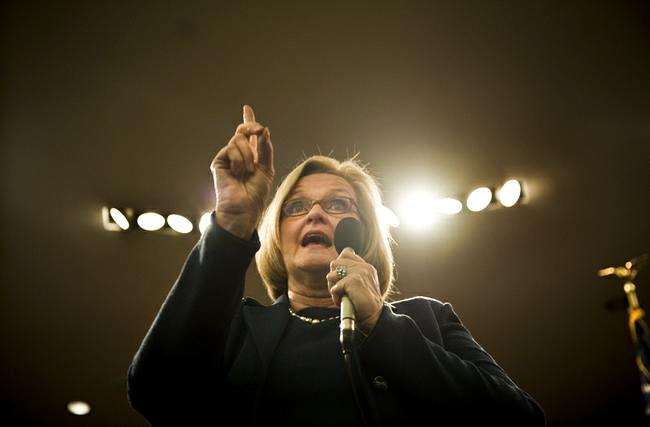Missouri Sen. Claire McCaskill, D-Missouri, and a union of 12 bipartisan senators strengthened the Campus Accountability and Safety Act in hopes of successfully moving it through the legislative process.
McCaskill, along with Sens. Dean Heller, R-Nevada; Kirsten Gillibrand, D-New York; and Kelly Ayotte, R-New Hampshire, released a statement July 29 stating the need to properly address campus sexual assault.
“Thanks to the survivors who have come forward and to a growing body of research, we know sexual assaults happen on campuses large and small, urban and rural, private and public,” the statement read. “We also know that the lack of uniform standards for filing reports or initiating investigations has contributed to cases being swept under the rug at the expense of the entire campus community. We have worked with survivors, advocates, parents, schools and law enforcement to craft the bipartisan Campus Accountability and Safety Act and finally fix this broken system.”
The Campus Accountability and Safety Act would ensure transparency and cooperation between schools and their law enforcement.
“We’re focused on figuring out a new approach, so that a student who is assaulted on a Friday night knows at that moment where he or she can go for confidential support and reliable information,” McCaskill said in a keynote address at the Campus Safety National Forum on June 25.
In the speech, McCaskill addressed the survivor’s decision to speak to someone, go through the process of reporting while keeping their confidence and trust in the system.
“If we can answer these questions; if young people can have the confidence that yes, there is someone they can talk to, and yes, they can get good information, then we will really begin to solve this problem,” McCaskill said.
Though many of these resources are currently available at MU, McCaskill’s legislation aims to strengthen them.
McCaskill’s spokesperson Sarah Feldman said the Relationship and Sexual Violence Prevention Center at MU provides many of the same support services that are required under Senator McCaskill’s Campus Accountability and Safety Act.
“In terms of training standards, training will be required for those that work in the Title IX office, those that are involved in the campus grievance process and those that interview the victim,” Feldman said.
RSVP Center coordinator Danica Wolf said the RSVP Center has trauma-informed staff members who work to meet with each person affected by sexual assault to address the situation appropriately.
“We know that the student is the expert on their own experience and help provide information about options in a safe and confidential space,” Wolf said.
The content of the proposed new training includes working with persons subject to sexual violence, information of what constitutes sexual violence, boundaries to an individual’s ability to consent, trauma, victim centered training, cultural awareness training, sexual assault dynamics and barriers to reporting.
“(MU students) can also share the need for more safeguards to protects students on campus with their family and friends,” Feldman said.
Wolf suggested that students get involved by joining Stronger Together Against Relationship and Sexual Violence, Not Anymore training and the Green Dot initiative.
“When we know more about these issues, we can do more to prevent violence by recognizing moments when we can intervene as bystanders — do a green dot,” Wolf said.








